Leading football writer Jonathan Wilson releases his latest book, ‘The Anatomy of Liverpool’ today and he kindly gave This Is Anfield his time to discuss the book, the history of the club, and the future.
The Anatomy of Liverpool (Orion) tells a version of Liverpool Football Club’s history over ten selected games from the club’s history. From the foundations of the club to the ‘Miracle of Istanbul’, Wilson dissects the multiple influences, people and stories that shaped one of the world’s most talked about clubs.
We were delighted to speak to Jonathan this week on his return from Zagreb, where he covered Croatia’s World Cup qualifying play-off win over Iceland.
Many football fans grow up idolising certain players or managers. Your work seems to suggest you idolise tactics and formations. How did you start taking a deeper interest in the way football was played, rather than who was playing it?
JW: It was only when I wrote ‘Inverting the Pyramid’ that I realised how tactically I did consider the game.
Even when I would play Subbuteto against my Dad as kid, I’d be very insistent on setting the players up in the right formations and then with Football Manager games on computers, going back to the Commodore 64 days. It was always the formation that most interested me then.
I’m an absolutely terrible footballer, but when I played at University in the mid-90s, we played 3-5-2. I was very fit and played right-wing-back and found there were ways to take at least two of their players out of the game and win the midfield battle.
I never sat down and wrote it out on a piece of paper but I understood what was going on.
When the possibility of writing the tactics books came up in a discussion with my agent, it was something I was already interested in. When I started writing about it, it confirmed a lot of things I knew that I perhaps hadn’t articulated before.
An example of how yourself, as a writer, views football, comes in the Prologue of Inverting the Pyramid.
You say that football, “is about shape and space, about the intelligent deployment of players, and their movement within that deployment.”
What similarities, or differences, to Inverting the Pyramid can readers expect from The Anatomy of Liverpool?
JW: By looking at detail at 10 games, it is an approach to history that has a couple of benefits.
One advantage is, by focusing really intently on one game, talking to the players or former players about that game, and reading all the newspaper reports around that game, you get a much richer idea of the day-to-day life of the club.
You learn about the strengths of the manager, but also the little irritations around the club that perhaps the players weren’t happy with, or the journalists weren’t happy with.
When you do an overview history and you try and give the bigger picture, it’s very easy to polish away the rough edges. You get the general view.
At a club like Liverpool, where so many good books have been written about their history, it’s useful as an alternative to go into the real nitty-gritty.
The other advantage is the tactical side. You really see how the great teams play in a specific circumstance.
For instance, against Leeds in the 1965 Cup Final, you see where the battles were won and where the strengths were in each team. Sometimes you can miss that with a general historic overview.
I’m not saying one approach is better than the other. I’m just saying it’s a different approach, particularly when you have a club that has been written about so much.
Tell me about the process you went through in choosing the ten matches in Liverpool’s history that shaped the narrative for this book.
JW: I wrote the book with Scott Murray, who’s a Liverpool fan. We went out to dinner to talk about the idea [of the book].
In parts you’re trying to pick good games and games that are interesting to talk about in themselves. There might be a key tactical point to focus on, or they’re a key moment in Liverpool’s history.
We tried to get a full spread across history – as different games as you can get.
We had 15 or 20 ideas each, many of which were the same and we pushed it down to try and get 10 really good games that also encapsulate Liverpool’s history.
I’ve chosen to ask you a question on ‘The Miracle of Istanbul’ as it is one key games that most of our readers will remember.
How do you think the tactical shift employed by Rafa Benitez around half-time in that game contributed to the remarkable comeback?
JW: There was a whole number of things going on there in terms of the emotion of the occasion.
I think it would be wrong to say that Milan didn’t contribute to their own downfall. I think they probably were complacent.
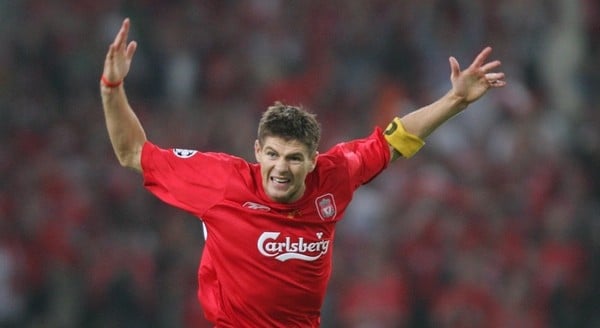
The way Liverpool battled through that season, the Olympiakos game especially, showed they had the togetherness of a team to keep fighting.
The way Liverpool fans reacted at half-time. A lot of fans would have hung heads at half-time and gone home, but they didn’t. The vast majority, 99%, stayed behind and their support clearly did contribute to Liverpool’s comeback.
But the most fundamental aspect was, without question, bringing Didi Hamann into midfield and creating a basis from which the comeback could begin. Without that control in midfield, they would never have been able to get back into the game.
Obviously if they had managed to freakishly score three goals, they would have needed to hold off Milan again, which ultimately they did. They needed that solidity there [in midfield] to hold out.
Which match in particular did you personally most enjoy researching, dissecting and writing about in the making of The Anatomy of Liverpool, and why?
JW: The games in the book are so different, you find yourself approaching each one very differently.
For example, I was there in Istanbul – you’d approach that very differently to when Aston Villa beat Liverpool 5-0 in 1899.
Each match presents different challenges and each one is differently interesting.
The difficult thing with writing about 2005 [European Cup Final] was to try and find out things that people didn’t already know, which is not easy in a match that has been talked about so much.
It was nice having the length of that chapter to be able to go into smaller details – including some nice stories I certainly didn’t know before.
Rafa Benitez was in the hotel in Istanbul and there were four lifts. He said to himself, if the one on the far left comes down, we’re going to lose. If the second one comes down, we’re going to win. If the third comes down, we’ll lose on penalties. If the fourth comes down, we’re going to win on penalties. And of course, it’s the fourth one that comes down.
That was the type of task we had – to find little details people didn’t already know. Difficult to do because people were either at the game, watched it on television, or certainly seen a video.
Whereas with the 1965 FA Cup Final, although there was a generation of fans who went, and watched it on TV. But part of the battle now is making fans understand that winning the FA Cup back then was seen as a bigger achievement than winning the FA Cup the previous season.
Bill Shankly said himself that Liverpool wouldn’t be a great club until they’d won the FA Cup. The match that followed, between Leeds and Liverpool, two clubs that weren’t “tactical teams”.
So we looked back through some of the old newspapers and the Daily Mirror, the Monday after the game, was incredibly critical of both teams, saying this “method football” was boring and declaring the “death of football”, playing the same football that won England the World Cup the next year.
On another level, the 1973 game against Red Star Belgrade was interesting because we did a lot of the research in Belgrade for that game. It gave a different angle because we already knew how British people perceived Liverpool through interviews and books, but how did the USSR see Liverpool and British football?
And finally, as a writer on football tactics, how do you see Brendan Rodgers’ evolving, or devolving, style of football right now?
JW: If you look at the top 20 clubs across Europe, the vast majority are based on personalities. You look at PSG and Monaco – they sign the big stars, or even Real Madrid signing Gareth Bale. They don’t really need him tactically, but it’s about making a statement, it’s about saying “we’ve signed a big player”.
Football ends up being driven by this celebrity status. There’s very few teams who try to deal with philosophy, rather than individuals. Borussia Dortmund are one, and I think Liverpool are one.
It’s fascinating to see a club not spending those enormous sums on players and yet they’re clearly progressing. If they keep progressing the way they have been progressing, it’s certainly not impossible they can qualify for the Champions League this season. Maybe in two or three years, they can be challenging for the title.
Maybe, looking at way this season’s Premier League is going, they could be challenging for the title this year, but I’d be slightly surprised at that. But it’s certainly not impossible.
Rodgers seems to have adapted his approach quite significantly from last season. They had better possession last season, but have played an average of five through-balls per game this season.
With Daniel Sturridge and Luis Suarez performing so well, they’re obviously trying to get the ball through to them more.
Ahead of this Saturday’s Merseyside Derby, Everton have a better possession percentage than Liverpool, whilst Liverpool’s pass completion is better, which suggests it’s not that Liverpool are playing worse, it’s that they’re playing differently.
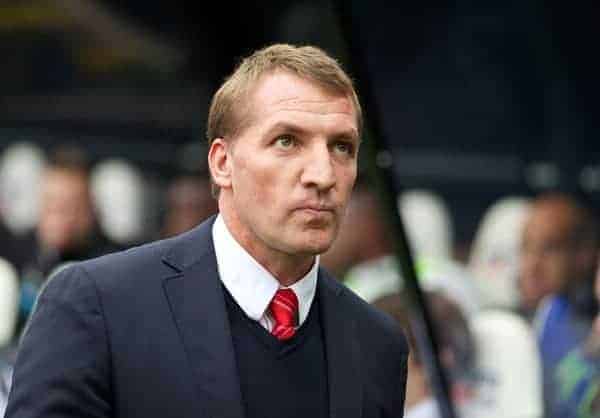
The fact that Rodgers has been prepared to adapt his beliefs to cope with the situation is a very promising sign. He’s not a fundamentalist – he’s someone who has a basic idea of how he wants to win, but he’s prepared to change things, according to what’s going on.
From a tactical point of view, you can make an argument that Liverpool are the most interesting team in England right at the moment.
The transfer market and the obsession with money can be quite distasteful in the modern game, so the fact that Liverpool, up to a point, are opposition to that is fascinating and a very good thing.
Thank you for taking the time to speak to us, Jonathan.

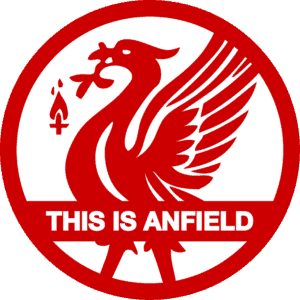
 JW: It was only when I wrote
JW: It was only when I wrote 





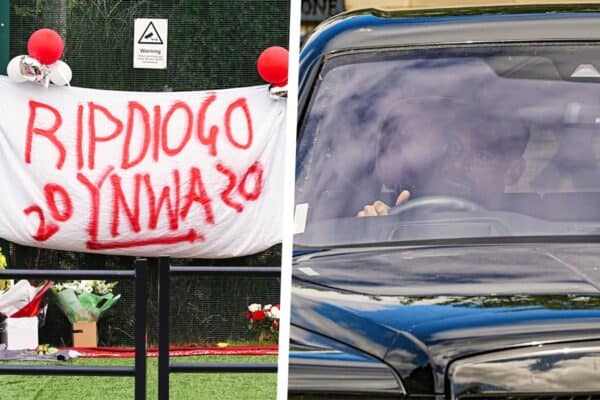


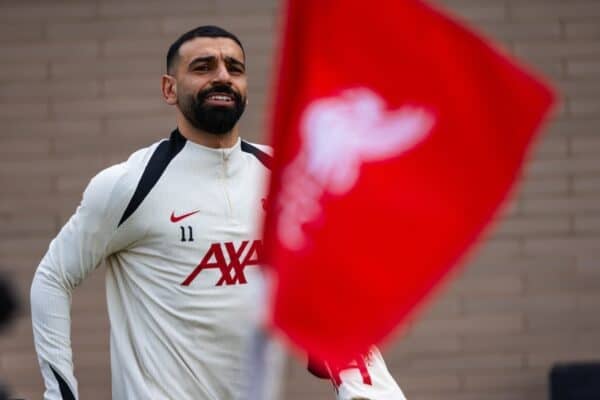

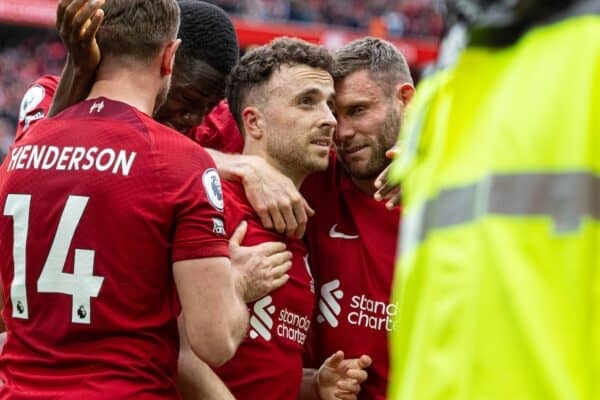




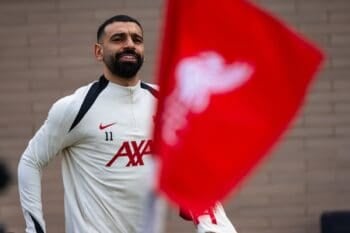

Fan Comments